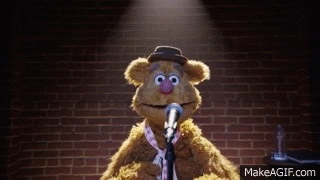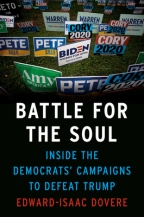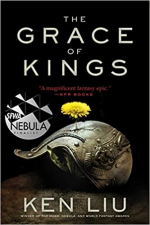- Joined
- Aug 9, 2018
- Messages
- 19,598
- Reaction score
- 2,424
- Gender
- Male
- Political Leaning
- Centrist
I'm back on a Steinbeck Kick.
Cannery Row.
Ever read To a God Unknown? It’s got a unique POV I can only call “mythic.”
I'm back on a Steinbeck Kick.
Cannery Row.



I cannot believe that this is your reading for fun! I admire you greatly for making history, actually any non-fiction, your escape reading (or reading for pleasure). When I was an undergraduate (centuries ago) the books you listed above were the kinds on the reading lists for some of my history classes. (I took an interest in US History and the Progressive Era at one point). Frankly, I do not remember anything at all about things with which I once had a passing familiarity, like The Grange movement. I really do admire your continued intellectual perseverance.Forcing myself back into reading for fun instead of stress reading for work and for research. It's like exercising. You have to get back into the swing of things.
So, what to get a bit deeper into? The historiography of the American populist movement in the 19th century!


Richard Hofstadter-The Age of Reform: From Byron to F.D.R. (1955), pages 1-130. (Just completed)
Soon to Start:
Lawrench Goodwyn-The Populist Moment: A Short HIstory of the Agrarian Revolt in America (1978)
Michael Kazin-The Populist Persuasian: An American History (Revised Edition, 2017)
Robert C. McMath, Jr.- American Populism: A Social History 1877-1898 (1993)
Soon to purchase:
Charles Postel-The Populist Vision (2007)
Walter Nugent-The Tolerant Populists: Kansas Populism and Nativism (Second Edition, 2013)
John Wicks-The Populist Revolt (orig, 1933)
C. Vann Woodward-Tom Watson: Agrarian Rebel (orig, 1938)
-Origins of the New South, 1877-1913 (origin, 1951)
And, yes, plans to go over into the populist's cause in the plains states during the early 20th century, followed by the evolution of it through the 1950s and 1960s.
A preliminary read suggests that, surprise, historians' analysis of populism has a lot to do with the social and/or political outlook of the historian in question, including what seems to be a lot of liberals taking potshots at Hofstadter's admittedly slim research into a need for the greater defense of the People's Party and the left-wing cause in general against whatever the right's populist variant during the time of publication.
I cannot believe that this is your reading for fun! I admire you greatly for making history, actually any non-fiction, your escape reading (or reading for pleasure). When I was an undergraduate (centuries ago) the books you listed above were the kinds on the reading lists for some of my history classes. (I took an interest in US History and the Progressive Era at one point). Frankly, I do not remember anything at all about things with which I once had a passing familiarity, like The Grange movement. I really do admire your continued intellectual perseverance.




I rarely read non-fiction, as I said above, but you are reminding me of a book I read that was true, historical, and set in Chicago. Now I have to try to remember what it was. I only read is a few years ago and it was not at all what I usually read. It was more "true crime".I’m reading Swift Walker, a biography of Gurdon Saltonstall Hubbard, an early founder of Chicago.
interesting stuff if you like history, and a nice glimpse into the end of the French fur trade in Illinois and the subsequent massive growth of Chicago.
I rarely read fiction!I rarely read non-fiction, as I said above, but you are reminding me of a book I read that was true, historical, and set in Chicago. Now I have to try to remember what it was. I only read is a few years ago and it was not at all what I usually read. It was more "true crime".
Yes, and it may have been fiction, not non-fiction. But it was based on real events, I guess.I’m reading Swift Walker, a biography of Gurdon Saltonstall Hubbard, an early founder of Chicago.
interesting stuff if you like history, and a nice glimpse into the end of the French fur trade in Illinois and the subsequent massive growth of Chicago.
I rarely read fiction!
But I’m guessing you’re talking about ‘The Devil in the White City’ about the 1893 Worlds Fair and HH Holmes.
Excellent book.
It was pretty much true.Yes, and it may have been fiction, not non-fiction. But it was based on real events, I guess.
Pew looks interesting but too frightening to me. I read the description you posted and thought immediately of Shirley Jackson's The Lottery. That's not my kind of story.I also read Catherine Lacey's novel, Pew, which is weird, but short and very thought provoking. I enjoyed it too.

Pew by Catherine Lacey review – a foreboding fable
A silent stranger of indeterminate age, gender and ethnicity holds up a mirror to the oddness and hypocrisy of a small American townwww.theguardian.com


Now that is an interesting choice. Tell us more as you read, please. I have not, yet, read it.I have started The Three Musketeers by Dumas. I am enjoying it thus far and can understand why it has retained such a lasting appeal.
I might give that a try. I have read The Count of Monte Cristo at least three times and it always delivers.I have started The Three Musketeers by Dumas. I am enjoying it thus far and can understand why it has retained such a lasting appeal.

I have seen her interviewed on television. Post any highlights!
Twilight of Democracy: The Seductive Lure of Authoritarianism
By Anne Applebaum - Doubleday - 2020 - 224pp
Offers insights into what Trump's presidency really means, both here and abroad.

